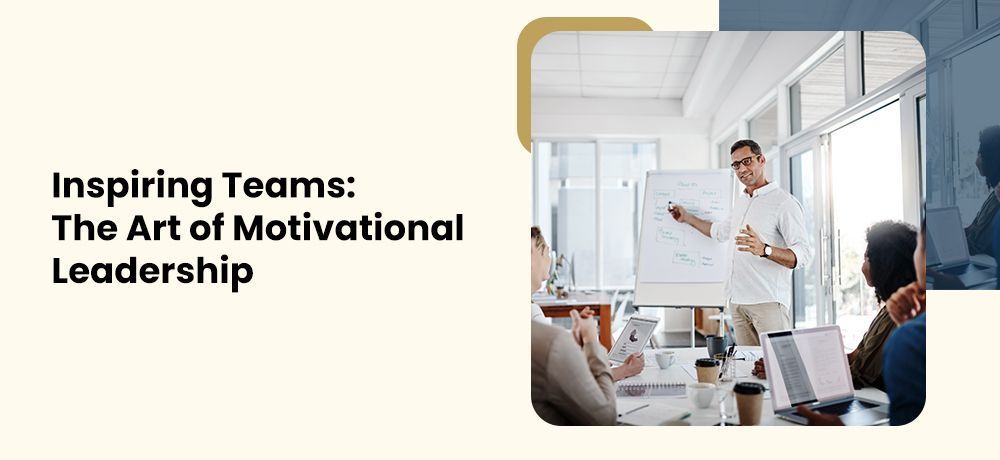Leading Through Change: Effective Strategies for Change Management
The ability to manage change effectively has become increasingly important in the current business environment. For business leaders, executives, and HR professionals, the stakes are significant. Rather than just implementing new systems or processes, the challenge lies in guiding their teams through the tumultuous waters of change while maintaining or even enhancing productivity. This blog delves into the critical role of leadership in change leadership and provides insights on how leaders can improve their strategies to not only cope with change but also to excel amidst it.
The Critical Role of Leadership in change leadership
change leadership is an essential skill for leaders in any industry, but it's particularly vital in environments where rapid technological advancements and market dynamics can disrupt established norms at a moment's notice. Effective leadership can be the difference between successful adaptation and organizational inertia. Leaders are not just executors of change; they are visionaries who motivate, guide, and support their teams through these transitions.
Understanding the Impact of Poor Leadership on Change Initiatives
Without strong leadership, change initiatives can falter. Common repercussions of inadequate leadership during change include low employee morale, high resistance to change, and ultimately, failure in achieving the desired transformation. Leaders must recognize these risks and strive to mitigate them by being proactive and prepared.
Key Leadership Qualities for Effective change leadership
To lead well through change, certain leadership qualities stand out as particularly effective:
Communication: Clear, consistent, and transparent communication helps in aligning the team’s understanding and expectations during a transition.
Empathy: Understanding and addressing the concerns and fears of employees can reduce resistance and foster a supportive culture.
Decisiveness: The ability to make timely decisions is crucial, especially when those decisions can significantly impact the course of the change process.
Adaptability: Leaders themselves must be willing to adapt their strategies and approaches in response to unforeseen challenges during the change process.
Strategic Approaches to Leading Change
How leaders approach the process of change is as important as their personal leadership qualities. Strategic thinking in planning and execution can dramatically improve the outcomes of change initiatives. Here are some strategies that can be employed:
Stakeholder Involvement: Engaging key stakeholders early in the change process ensures that there is broad support and active participation across the organization.
Risk Management: Identifying potential risks and developing strategies to mitigate them is essential for smooth transitions.
Continuous Learning: Leaders should foster a culture of learning and innovation within the organization to encourage adaptation and improvement.
Enhancing Team Dynamics During Change
One of the most significant challenges that leaders face during periods of change is maintaining and enhancing team dynamics. Business leaders, executives, and HR professionals must understand that the way a team collaborates and communicates can make or break the success of a change initiative. Here are some actionable steps leaders can take:
Building Trust: Leaders need to actively work on building trust within their teams. This involves being open about the challenges and uncertainties of the change process as well as being consistent in words and actions.
Encouraging Open Dialogue: Creating a safe space for team members to express their thoughts and concerns about the change can lead to valuable insights and increased buy-in.
Promoting Collaboration: Facilitating opportunities for team members to work together on solutions not only improves the outcome but also strengthens interpersonal bonds.
Utilizing Technology to Support change leadership
Technology plays a crucial role in today's change leadership strategies. Effective leaders leverage technology not only to streamline processes but also to enhance communication and collaboration. Implementing the right tools can help in:
Improving Communication: Tools like project management software and communication platforms can keep everyone updated and ensure consistency in messaging across all levels of the organization.
Facilitating Training: Online training modules and virtual workshops can be very effective in bringing everyone up to speed with new systems and processes.
Monitoring Progress: Technology can be used to track the progress of change initiatives, allowing leaders to make data-driven decisions and adjustments as needed.
Addressing Resistance to Change
Resistance to change is a common issue that can derail even the most well-planned initiatives. Leaders must be adept at identifying and addressing this resistance. This involves:
Identifying the Root Causes: Understanding why individuals or groups are resistant is the first step in addressing their concerns.
Engaging with Resistors: Direct engagement with those who are resistant can help in clarifying misunderstandings and adjusting strategies to better meet the needs of all stakeholders.
Providing Support and Resources: Offering support and resources to help individuals adapt to change can alleviate fears and build confidence in the new direction.
Measuring the Success of change leadership Efforts
Finally, it is crucial for leaders to measure the success of their change leadership efforts. This not only helps in validating the strategies used but also in identifying areas for improvement. Effective measurement can be achieved through:
Feedback Mechanisms: Regular feedback from team members and stakeholders can provide insights into the effectiveness of the change leadership strategies.
Performance Metrics: Key performance indicators related to the change initiative should be monitored to assess its impact on organizational goals.
Continuous Improvement: The data collected should be used to refine and improve future change initiatives, ensuring ongoing success in a dynamic business environment.
Utilizing Technology to Support change leadership
Embracing technology is imperative for effective change leadership. Leaders can use digital tools to streamline operations, enhance communication, and facilitate collaboration. By leveraging project management software, communication platforms, and virtual training tools, organizations can ensure that all team members are on the same page and equipped with the necessary skills to navigate new processes.
At The Leadership Channel Consulting, we understand the complexities of managing change and the critical role that leadership plays in this process. Our expert team in San Antonio is dedicated to supporting leaders through tailored training and coaching programs that address these challenges head-on. By partnering with us, you can ensure that your organization not only survives but thrives in the face of change.
For more information on how we can help you lead successfully through change, reach out to us at info@theleadershipchannel.org.












